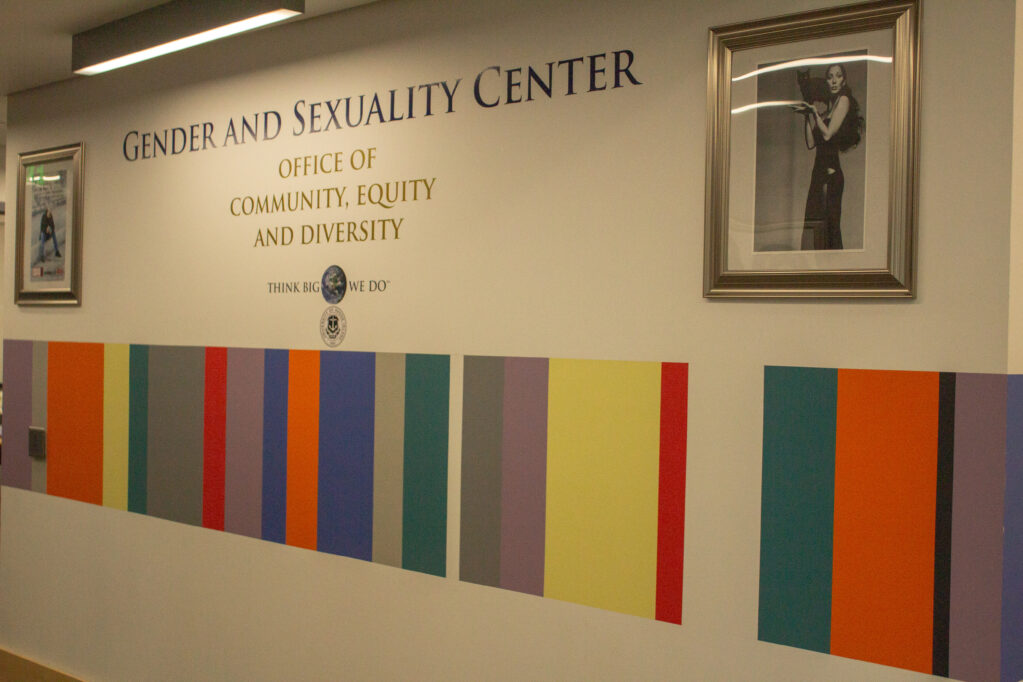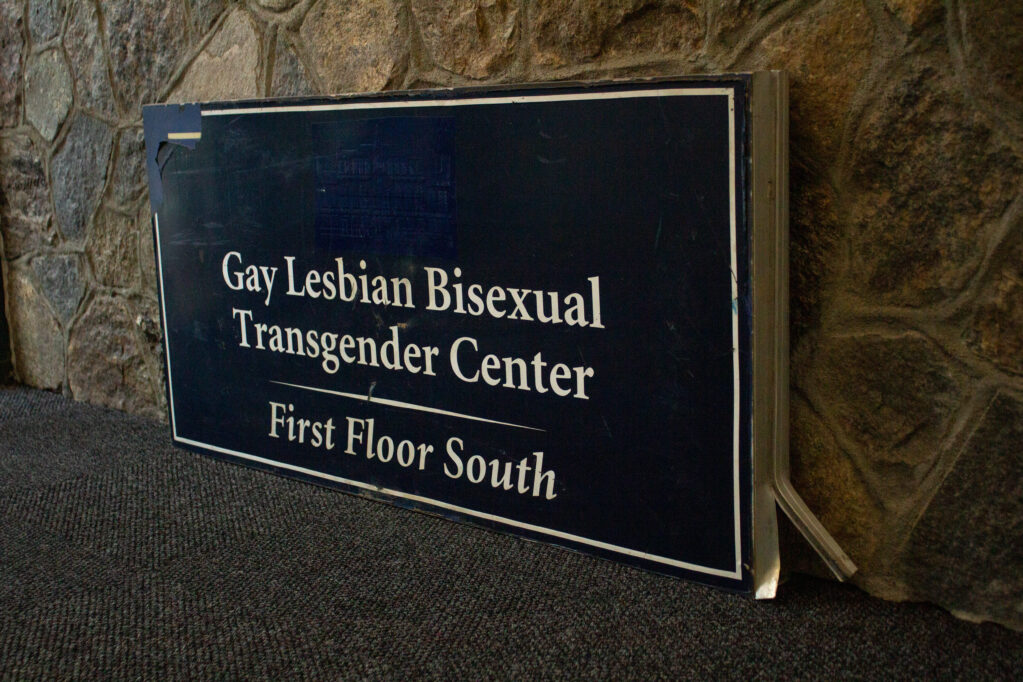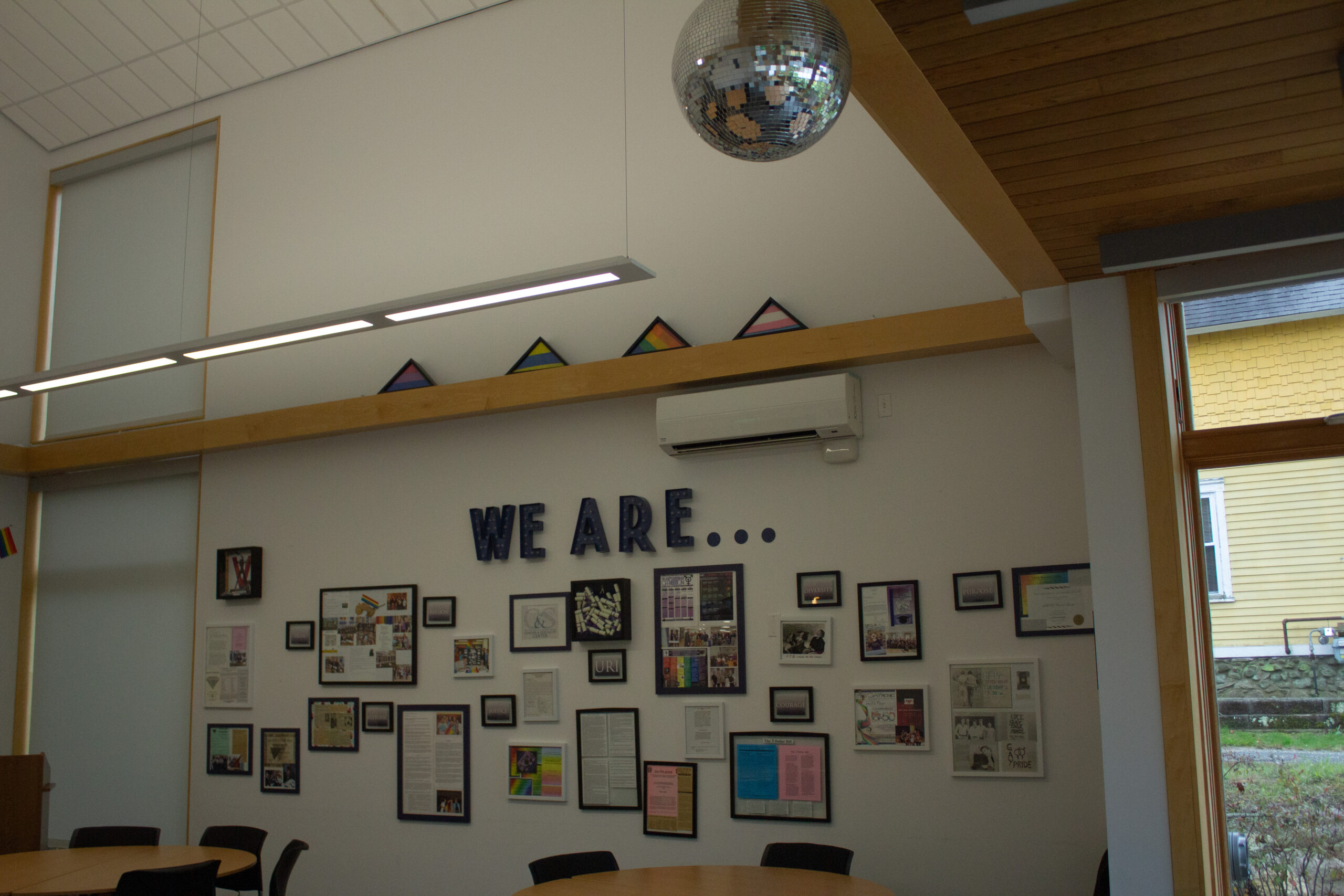Gender and sexuality center to hold events, workshops
Pride is a sense of self, liberation is freedom for a group. PHOTO CREDIT: Maddie Bataille | Photo Editor
October is recognized as LGBTQ+ liberation month for the first time by the University of Rhode Island’s Gender and Sexuality Center.
Previously known as “coming-out month,” the name was reworked in order to better encapsulate what coming-out really means, according to Annie Russell, Director of GSC.
The original name came from “National Coming Out Day,” on October 11.
“Coming-out is a lifelong process,” Russell said.

The reason behind a name change is two-fold, explained Russell. First being that liberation better reflects the wide spectrum of events that they hold, outside of coming-out. Secondly, looking forward, GSC is promoting a freedom of oppression and freedom of bias, which should be values of the University for every student regardless of who they are, Russell said.
“Liberation to me,” Katie Reidy, third-year student and employee at GSC, said, “is allowing a freedom for people to just exist in society as themselves.”
The GSC says while their work is focussing on LGBTQ+ populations, they recognize intersecting identities within the population and beyond.
“Liberation is about groups,” Russell said. “Pride is a sense of authentic self, which is ever changing.”
Pride month, in June, has a lot of history behind it, explained Russell. Liberation month is looking forward to the future of equality. Both feel a sense of community but liberation is togetherness.
LGBTQ+ liberation month is a time to highlight and educate around queer and trans issues. From events such as “Coming Out of the Quad” to “Drag Ball” and “Sex-Toy Bingo,” the GSC is planning on educating students with these entertaining events.

As well as an unprecedented keynote speaker, Sinn Sage, a queer adult entrepuenuer and entertainer, who will give various talks about sex-work and sex-education.
“While ‘Sex-Toy Bingo’ may sound like a whole lot of fun, and is a whole lot of fun,” Russell said. “We’re talking about sex-education.”
Russell says that GSC’s goal is to create a space where college students can go to learn about “the more taboo social topics” that don’t get focused on.
“That’s what higher education institutions do,” Russell said.
It’s about cultivating spaces for all students to exist, says Riedy.
Included in this month is the addition to the sixth Safe Zone track to protect reproductive rights.
Safe Zone is a series of workshops that allow people to learn how to work with marginalized groups.
“It is something that has to be earned,” Russell said.
Safe Zone training includes, race, ethnicity, sexuality, gender identiy, trans issues and fluid non-binary and now reproductive health.
Safe Zone is a large part in showing support towards marginalized groups outside of times such as Pride or LGBTQ+ liberation that are celebrating identities.
“There’s a whole lot more that we could do as an institution,” Russell said.
Russell pointed out there feels like a lack of support from the University on highlighting the work the GSC is doing, such as a shout-out for their events through an all-campus email.
“It’s gotta be everywhere,” Russell said.
With something like Safe Zone it has to be in communications when our President talks about people who are diverse, she said.
The GSC wants to be inclusive in all aspects of the sense, including representation for intersecting identities, having bathrooms for all people in every building on campus and for URI to be the space for LGBTQ+ students to thrive. For more information of LGBTQ+ liberation month and events follow the GSC on Instagram @urigenderandsexualitycenter or access events on their website.





